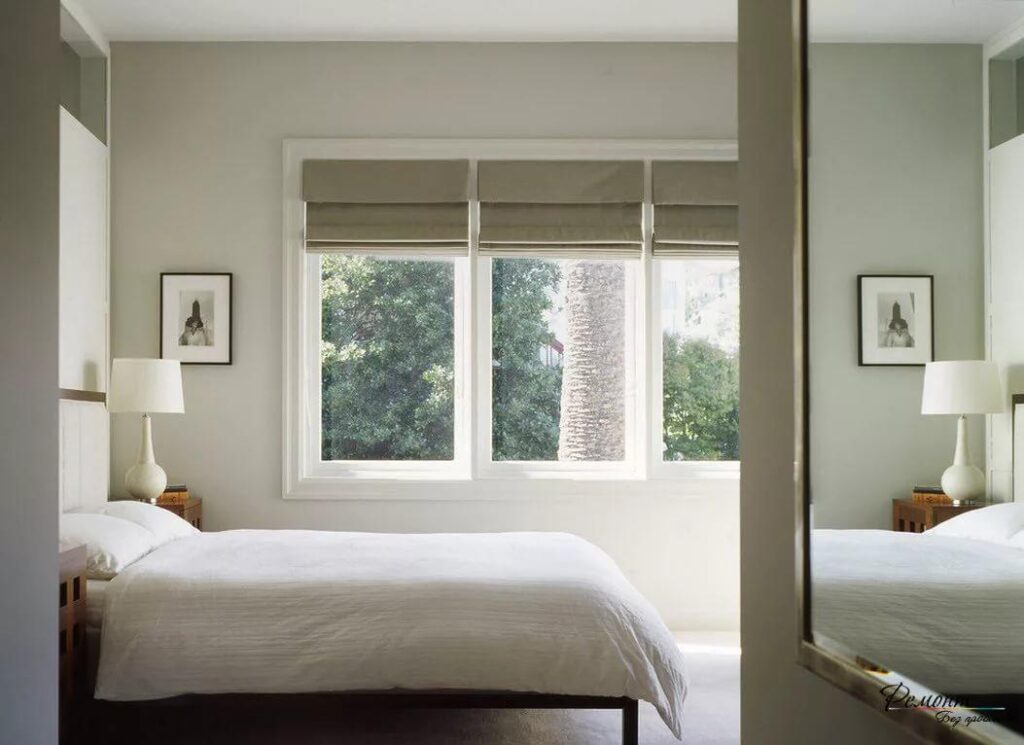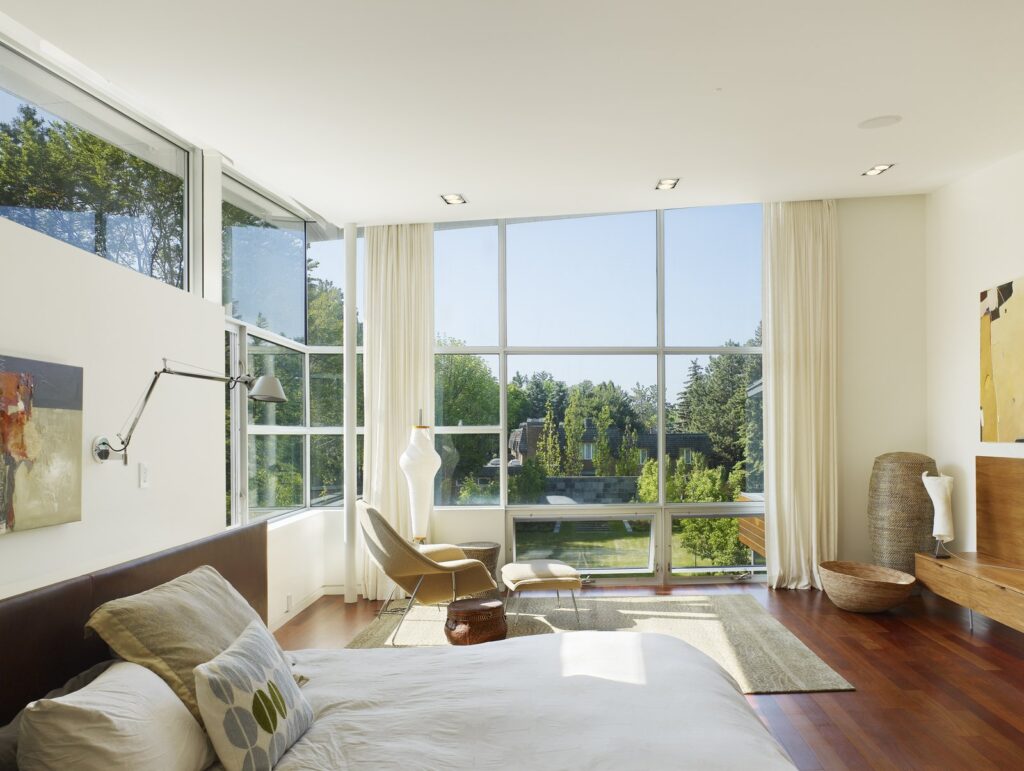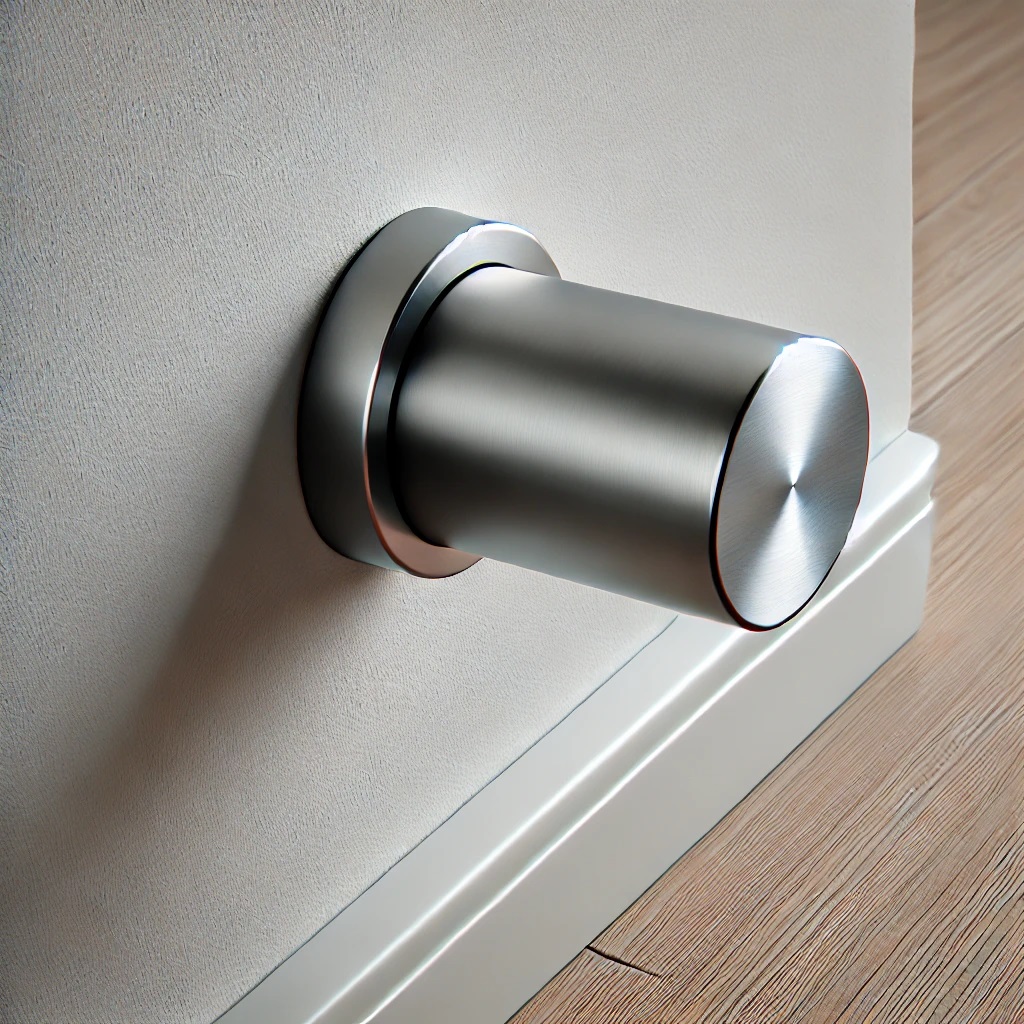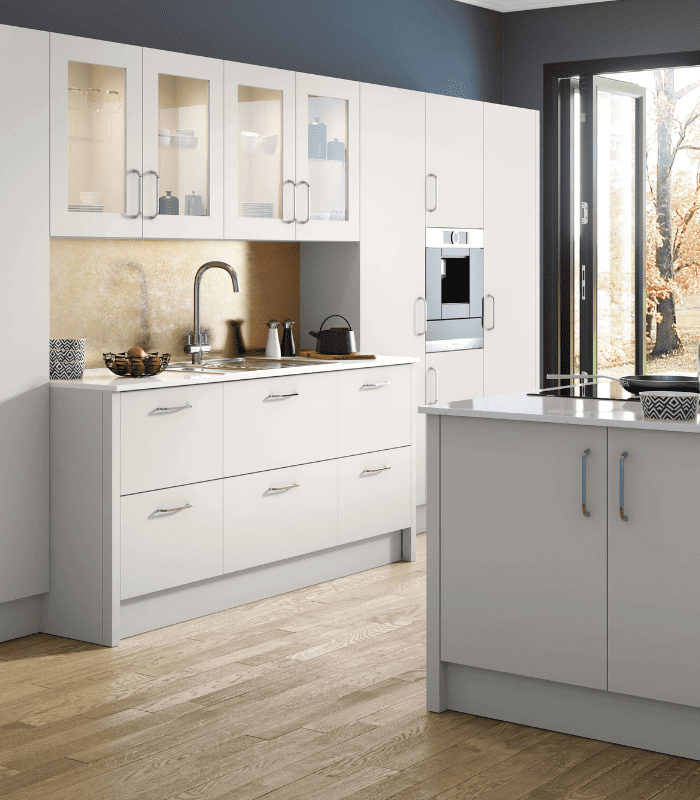When designing or renovating a bedroom, windows play a vital role in terms of safety, ventilation, natural light, and overall comfort. In the UK, building regulations for windows in bedrooms ensure that windows are not only functional but also safe, energy-efficient, and accessible.
Ventilation Requirements
Building regulations stipulate that bedrooms must have adequate ventilation. This is essential to maintaining good air quality, preventing condensation, and avoiding the build-up of harmful gases like carbon dioxide.
Natural Ventilation:
Windows must allow for adequate natural ventilation, which is typically achieved through opening windows. To meet basic natural ventilation standards, the window area should be no less than 5% of the room’s total floor space, or 1/20th of its size.
Trickle Vents:
In some cases, additional ventilation may be required, such as trickle vents built into the window frames. These allow a small amount of air to pass through, reducing condensation without fully opening the window.
Privacy and Overlooking
Building regulations for bedroom windows often address the issue of overlooking to prevent privacy issues between neighbouring properties or different areas of a building.
Window Positioning:
The position of bedroom windows should consider the privacy of both the occupant and neighbours. For example, windows that face directly into a neighbouring property’s living space may need to be set back a certain distance or fitted with frosted or obscured glass to prevent a loss of privacy.
Window Height and Style:
In some cases, regulations may specify the height of the window to limit the view into other areas of the building.
Window Security
For safety and security reasons, windows in bedrooms, particularly those on lower floors, must be secure and difficult to break into.
Locking Mechanisms:
Windows should be fitted with secure locking mechanisms that can be operated easily from inside the room but are difficult for intruders to manipulate from the outside.
Child Safety:
In bedrooms used by children, particular attention should be given to the opening mechanisms to prevent children from falling out. This may include window restrictors that limit the window opening to a safe level.
Window Safety Glass
Another important aspect of building regulations concerns the type of glass used in windows, particularly in areas that are prone to impact or where people could be at risk of injury.
Toughened or Laminated Glass:
In certain areas, especially where windows are located near the floor or where there is a risk of breakage, toughened or laminated glass may be required. This type of glass is designed to be more resistant to breakage and reduce the risk of injury if the glass does break.
Safety Zones:
Regulations often require safety glass to be used in specific “hazardous” areas, such as where the window is within a certain height from the floor or where there is a risk of people meeting the glass.

Fire Safety
Fire safety is another critical concern, particularly in bedrooms where the risk of fire can be higher due to the use of electrical appliances or heating.
Fire Resistance:
In some cases, windows in bedrooms may need to have fire-resistant properties. Fire-resistant glazing may be required for windows located in fire-resistant walls or those part of a building’s fire compartment.
Ventilation in Case of Fire:
Windows also help with ventilation during a fire, as they can allow smoke to escape and prevent the build-up of harmful gases. Properly vented windows can be part of a fire safety strategy for the entire building.
Window Installation
Proper installation is essential for ensuring that windows comply with building regulations. Improper window installation can compromise energy efficiency, safety, and the overall stability of the structure.
Professional Installation:
To meet regulatory standards, bedrooms must have windows installed by professionals who are experienced with building regulations and can ensure the correct materials and installation methods are used.
Certification:
In some cases, the installation of windows must be signed off by a qualified professional, particularly if it’s part of a larger construction project, to confirm that it meets all applicable building regulations.
Conclusion:
Building regulations for windows in bedrooms are designed to ensure the safety, energy efficiency, and comfort of the building’s occupants. These regulations cover a variety of factors, from ensuring adequate ventilation and natural light to providing escape routes in emergencies and maintaining privacy and security. Whether you’re planning a new build, a renovation, Sash Window Specialists London, or replacing existing windows, it’s essential to understand and comply with these regulations to ensure your project is safe, legal, and effective. Always consult with a qualified professional to ensure that your windows meet the necessary building standards and contribute to the overall functionality of the space.



